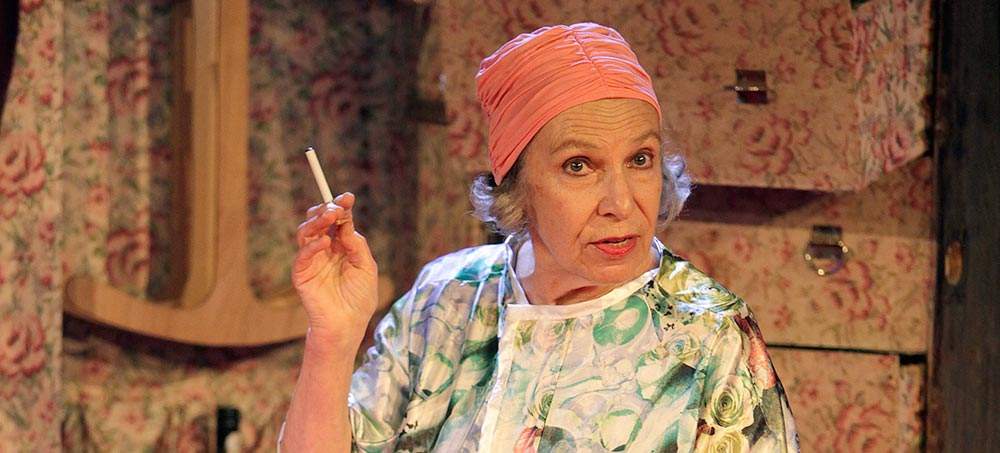Unholy Ghosts
A son and his ageing parents get to grips with the pointy end of mortality.
Overview
Francis Bacon (not the painter) once wrote, "The joys of parents are secret, and so are their griefs and fears: they cannot utter the one, nor they will not utter the other." In Unholy Ghosts (written by Campion Decent and directed by Kim Hardwick), a son does his best to extract exactly these utterances from his ailing parents as he, and they, get to grips with the pointy end of mortality.
The play, which stems heavily from Decent’s own experiences, comprises a number of scattered reminiscences related by Son (James Lugton) as he recalls certain conversations with his ageing parents, Mother (Anna Volska), a retired actress who continues to revel in the dramatic, and Father (Robert Alexander), an irascible ex-salesman with no shortage of bitterness. Although the story is not strictly linear, there is never any doubt as to the direction in which we are headed; the play begins with Son’s recitation of synonyms for nothingness — “abyss, void, chasm, hole” — and it is a list he repeats at various points throughout the play.
Despite allusions to hospitals and nursing homes, the stage is hidden under plush crimson carpet, overlooked by a dilapidated chest of flower-patterned drawers. It is the landscape of a fading memory, sparse and ebbing. The lighting is for the most part warm and realistic, but a subtle cold glow upstage illuminates a constant mist, the fug of history through which Son is backtracking, perhaps.
Although described by Decent as a ‘navigation of loss’, Unholy Ghosts also traverses some very funny territory. The characters have obviously been written with a great deal of affection, and they are treated the same way by the actors inhabiting them. Volska is all class and wit as Mother, whilst Alexander’s skinflint Father seems to have been working his whole life to attain the status of perfect curmudgeon. Lugton runs between the two, an apt foil for both, his fondness often outweighed by sheer exasperation.
The ending is quite odd and not entirely convincing. A fantasy reconciliation in the afterlife and a hurried celebration of extant family undermines a great deal of the excellent character work that preceded it. There is an obvious need to step back from the void at some stage, but this jarred considerably.
Ultimately, though, Unholy Ghosts is a well-acted exploration of family and grief, an unflinching portrait of two flawed individuals who continue to charm and frustrate despite having shuffled off this mortal coil.





